The Gamer Features Editor Ben Sledge Accuses The Lord Of The Rings Creator J.R.R Tolkien Of Using Anti-Semitic Stereotypes, Calls Fans Racists
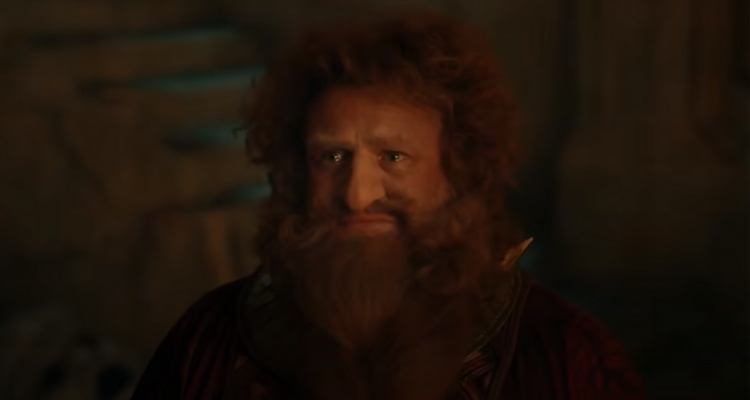
The Gamer’s Features Editor Ben Sledge recently accused J.R.R. Tolkien of using anti-Semitic stereotypes in his The Lord of the Rings books.
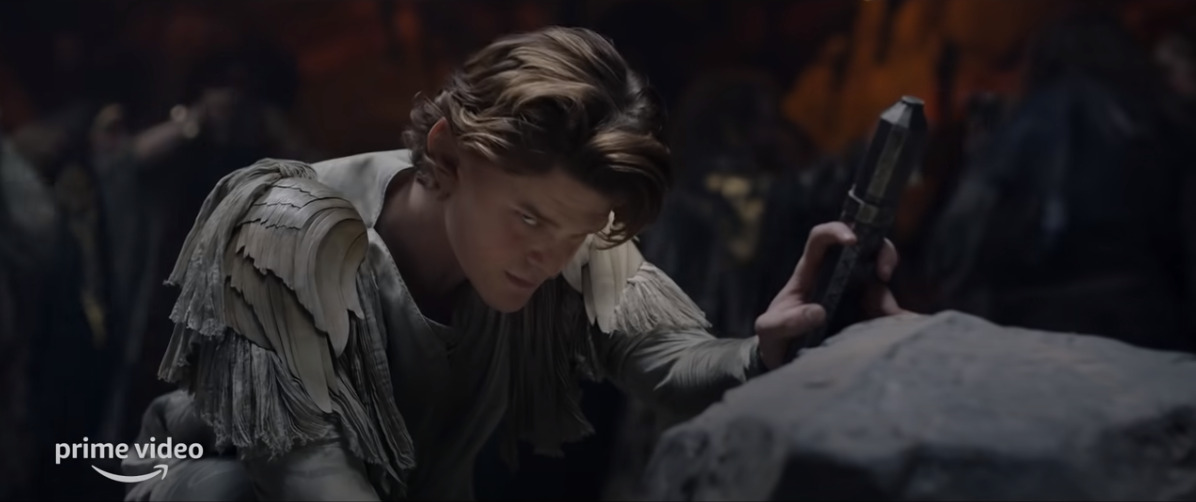
Source: The Lord of the Rings: The Rings of Power
Sledge’s accusations came in a published piece on The Gamer, which is owned by Valnet Inc, the parent company of websites like CBR and ScreenRant, titled “The Lord of the Rings: The Rings Of Power Has People Of Colour, Get Over It.”
Before Sledge gets to his accusations, he makes the ironic statement, “Before we get any further, I want to make this clear: whether you’re trolling, gatekeeping, plain old racist, or all of the above, you have no place in this fandom.”
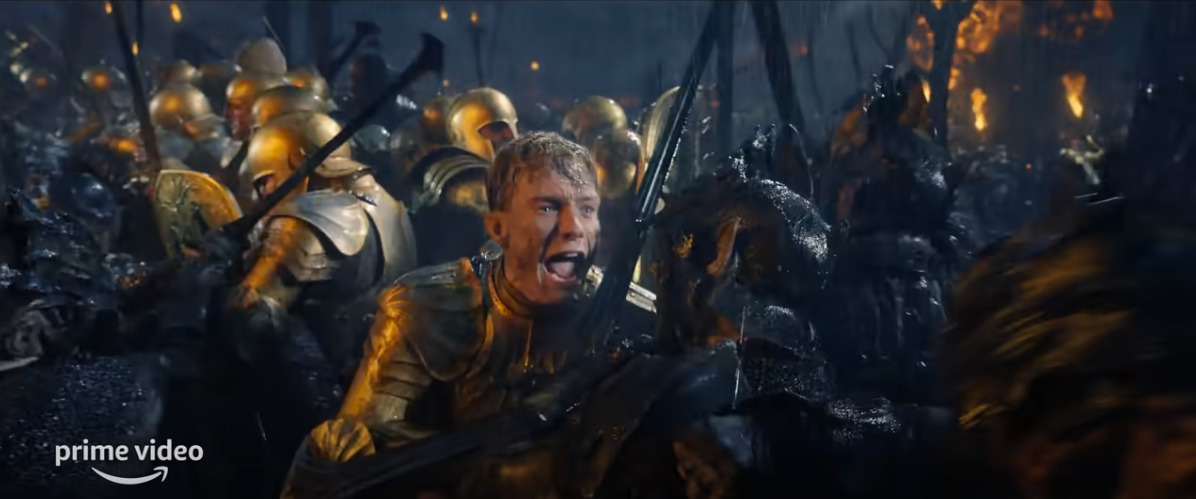
Source: The Lord of the Rings: The Rings of Power
RELATED: The Lord Of The Rings Fan Site Torches Amazon’s New The Lord Of The Rings: The Rings Of Power Series
As he progresses through his article, Sledge eventually accuses Tolkien’s depiction of dwarves as anti-Semitic.
He writes, “Tolkien’s works aren’t free from criticism themselves. The anti-Semitic stereotypes in his depiction of dwarves may have been written with good intentions, but calling Jewish people ‘gifted’ does not atone for the stereotypes he perpetuated.”
Not only does he accuse Tolkien of anti-Semitism, he then lashes out at The Lord of the Rings fans, “If you’re only okay with actors of colour appearing as Orcs or Easterlings, you’re also perpetuating the stereotypes that appear in the text of The Lord of the Rings, whether intentional or not, that people of colour often represent evil or ‘other’.”
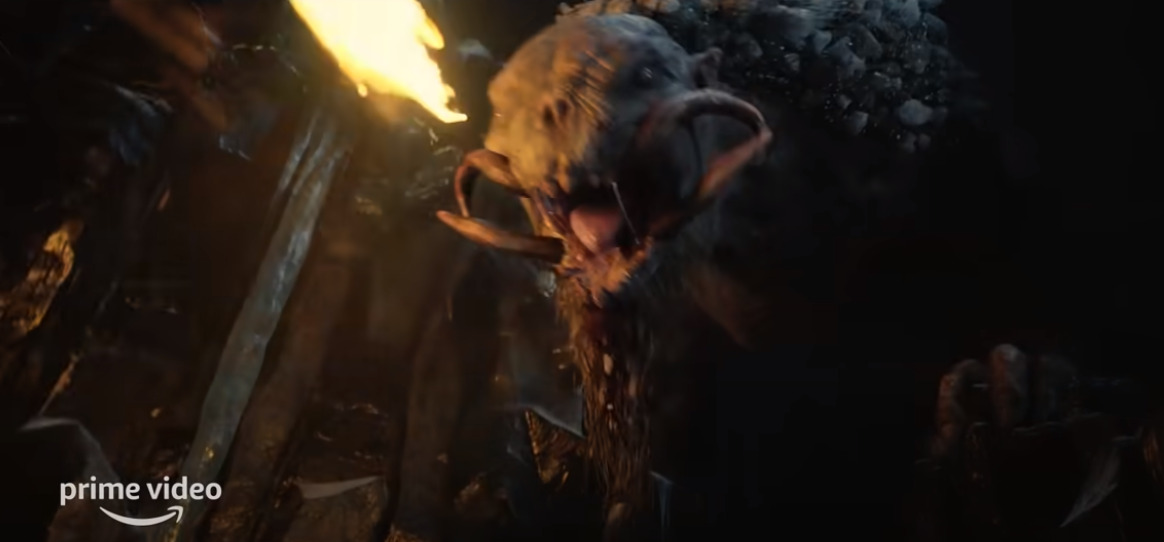
Source: The Lord of the Rings: The Rings of Power
Sledge then continued to show his ignorance as he quotes a letter Tolkien wrote to Milton Waldman, Letter 131. However, you wouldn’t be surprised to learn that Sledge takes the quote out of context and completely misconstrues it.
He writes, “Tolkien had a vision, but it was a vision that he wanted others to fill in the blanks of, as he says in Letter 131 he fully intended to ‘leave scope for other minds and hands’.”
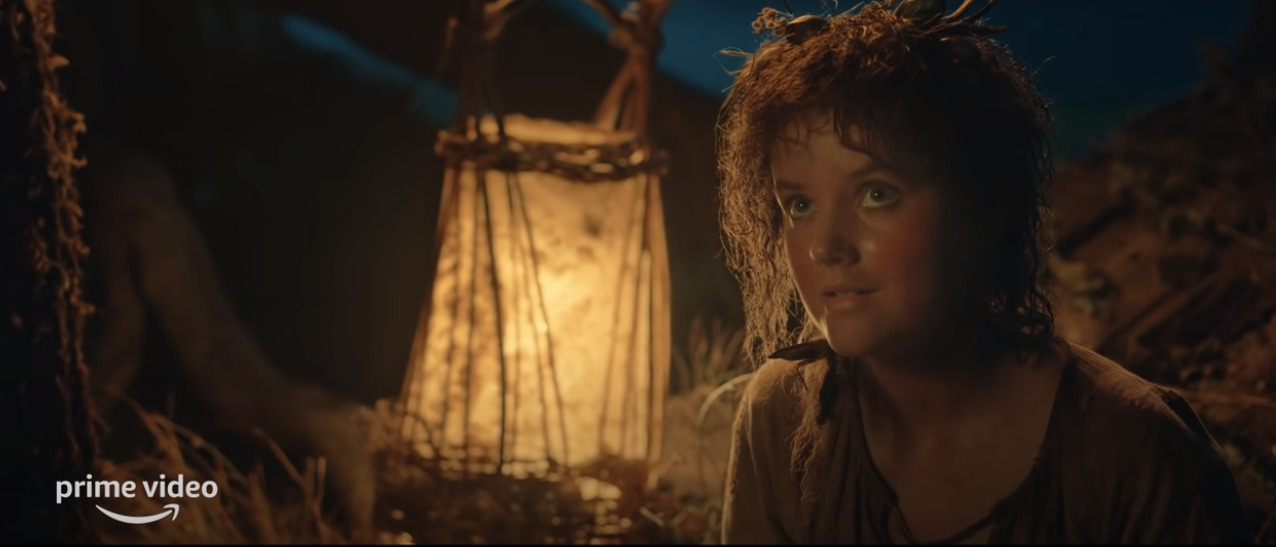
Source: The Lord of the Rings: The Rings of Power
RELATED: Significant Plot Details Revealed For The Lord Of The Rings: The Rings Of Power
If you look at the full context of Letter 131, you will realize that his entire assertion is a bald-faced lie.
Tolkien wrote to Waldman, “Do not laugh! But once upon a time (my crest has long since fallen) I had a mind to make a body of more or less connected legend, ranging from the large and cosmogonic, to the level of romantic fairy-story-the larger founded on the lesser in contact with the earth, the lesser drawing splendour from the vast backcloths – which I could dedicate simply to: to England; to my country.”
He continued, “It should possess the tone and quality that I desired, somewhat cool and clear, be redolent of our ‘air’ (the clime and soil of the North West, meaning Britain and the hither parts of Europe: not Italy or the Aegean, still less the East), and, while possessing (if I could achieve it) the fair elusive beauty that some call Celtic (though it is rarely found in genuine ancient Celtic things), it should be ‘high’, purged of the gross, and fit for the more adult mind of a land long now steeped in poetry.”
“I would draw some of the great tales in fullness, and leave many only placed in the scheme, and sketched. The cycles should be linked to a majestic whole, and yet leave scope for other minds and hands, wielding paint and music and drama. Absurd,” Tolkien wrote.
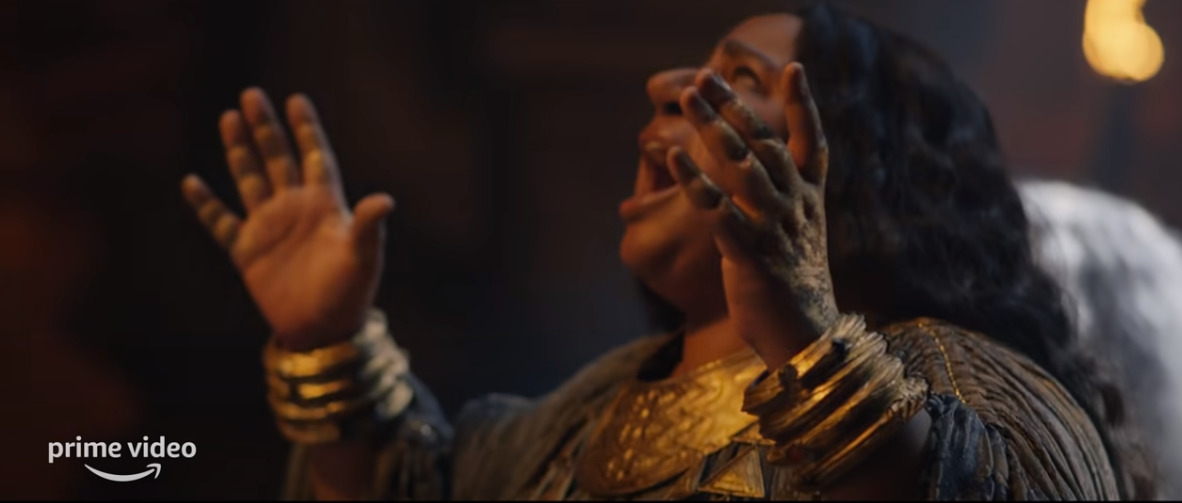
Source: The Lord of the Rings: The Rings of Power
Clearly, Tolkien is not referring to The Lord of the Rings here, but a separate idea he had about a connected legend dedicated to England.
However, even in that idea he also had a clear opinion of what it would be, eloquently describing the tone and quality.
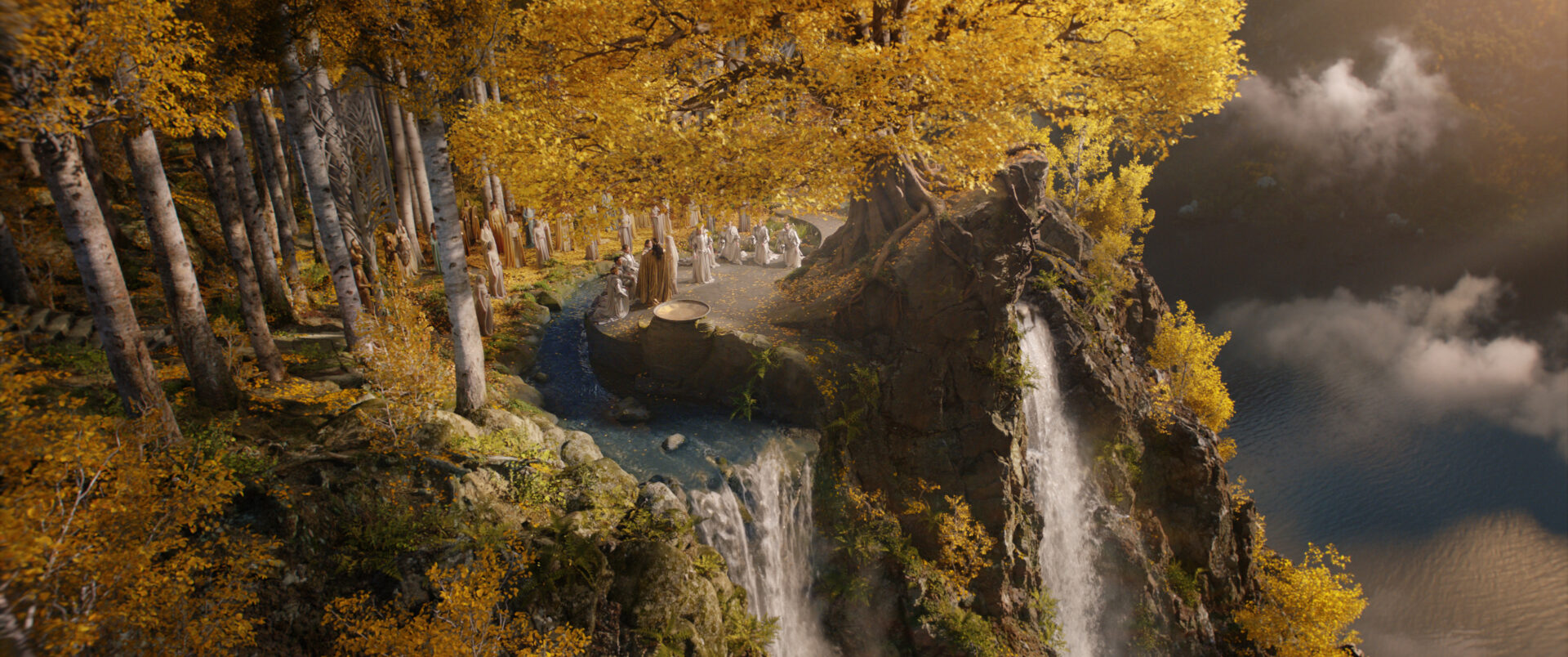
Source: The Lord of the Rings: The Rings of Power
Tolkien also made clear he had a very specific vision for The Lord of the Rings and wanted that to be followed as he expressed in a letter to Forest J. Ackerman regarding a film treatment for The Lord of the Rings.
Tolkien wrote at one point in the letter, “Why should the firework display include flags and hobbits? They are not in the book. ‘Flags’ of what? I prefer my own choice of fireworks.”
He would also criticize changes to the Eagles writing, “The Eagles are a dangerous ‘machine’. I have used them sparingly, and that is the absolute limit of their credibility or usefulness. The alighting of a Great Eagle of the Misty Mountains in the Shire is absurd; it also makes the later capture of G. by Saruman incredible, and spoils the account of his escape.”
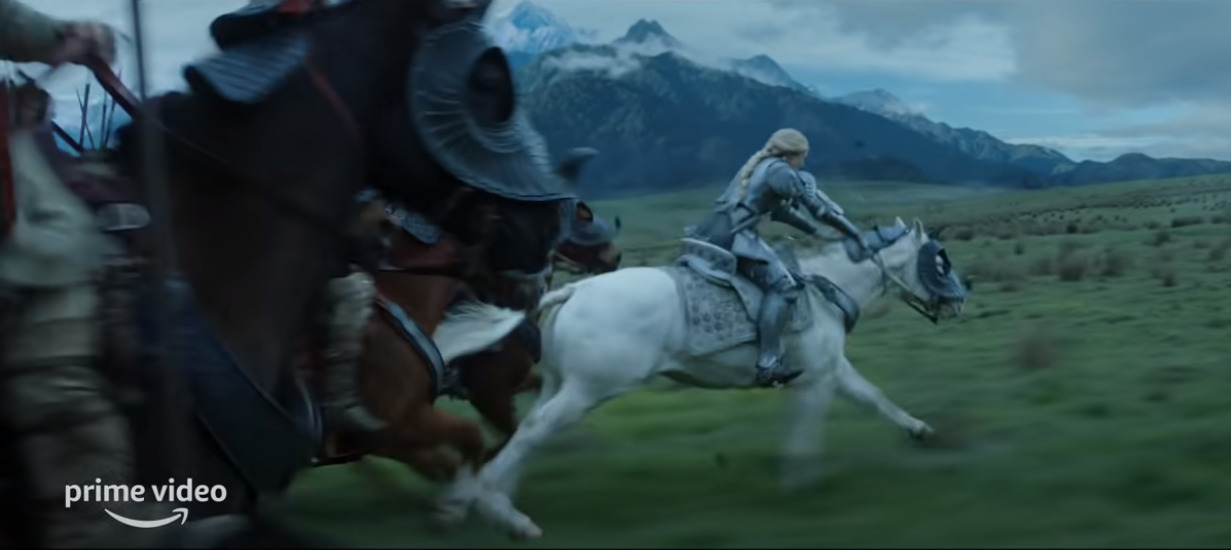
Source: The Lord of the Rings: The Rings of Power
Tolkien would even take issue with contracting the time frame of the film, something The Rings of Powers is doing. He wrote, “Here I may say that I fail to see why the time-scheme should be deliberately contracted. It is already rather packed in the original, the main action occurring between Sept. 22 and March 25 of the following year.
“The many impossibilities and absurdities which further hurrying produces might, I suppose, be unobserved by an uncritical viewer; but I do not see why they should be unnecessarily introduced. Time must naturally be left vaguer in a picture than in a book; but I cannot see why definite time-statements, contrary to the book and to probability, should be made,” he added.
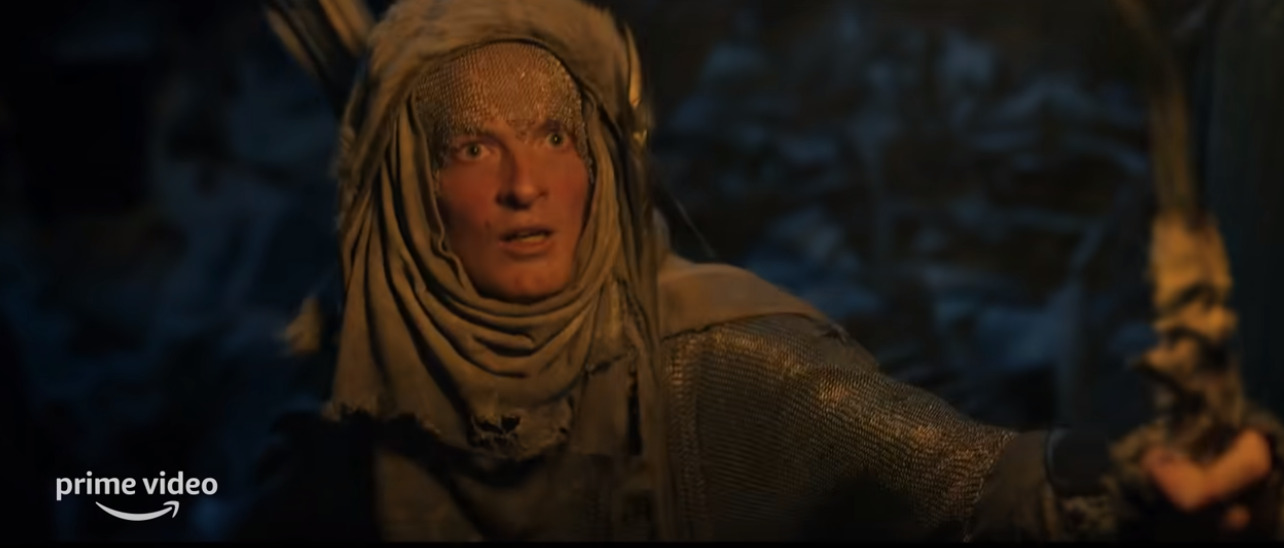
Source: The Lord of the Rings: The Rings of Power
The letter has numerous instances of Tolkien paying attention to the slightest detail such as his commentary on Aragorn, “Aragorn did not ‘sing the song of Gil-galad’. Naturally: it was quite inappropriate, since it told of the defeat of the Elven-king by the Enemy. The Black Riders do not scream, but keep a more terrifying silence. Aragorn does not blanch. The riders draw slowly in on foot in darkness, and do not ‘spur’. There is no fight. Sam does not ‘sink his blade into the Ringwraith’s thigh’, nor does his thrust save Frodo’s life. (If he had, the result would have been much the same as in III 117-20:4 the Wraith would have fallen down and the sword would have been destroyed.)”
Tolkien then notes, “Why has my account been entirely rewritten here, with disregard for the rest of the tale? I can see that there are certain difficulties in representing a dark scene; but they are not insuperable. A scene of gloom lit by a small red fire, with the Wraiths slowly approaching as darker shadows – until the moment when Frodo puts on the Ring, and the King steps forward revealed – would seem to me far more impressive than yet one more scene of screams and rather meaningless slashings…..”
“I have spent some time on this passage, as an example of what I find too frequent to give me ‘pleasure or satisfaction’: deliberate alteration of the story, in fact and significance, without any
practical or artistic object (that I can see); and of the flattening effect that assimilation of one incident to another must have,” Tolkien concluded the point.
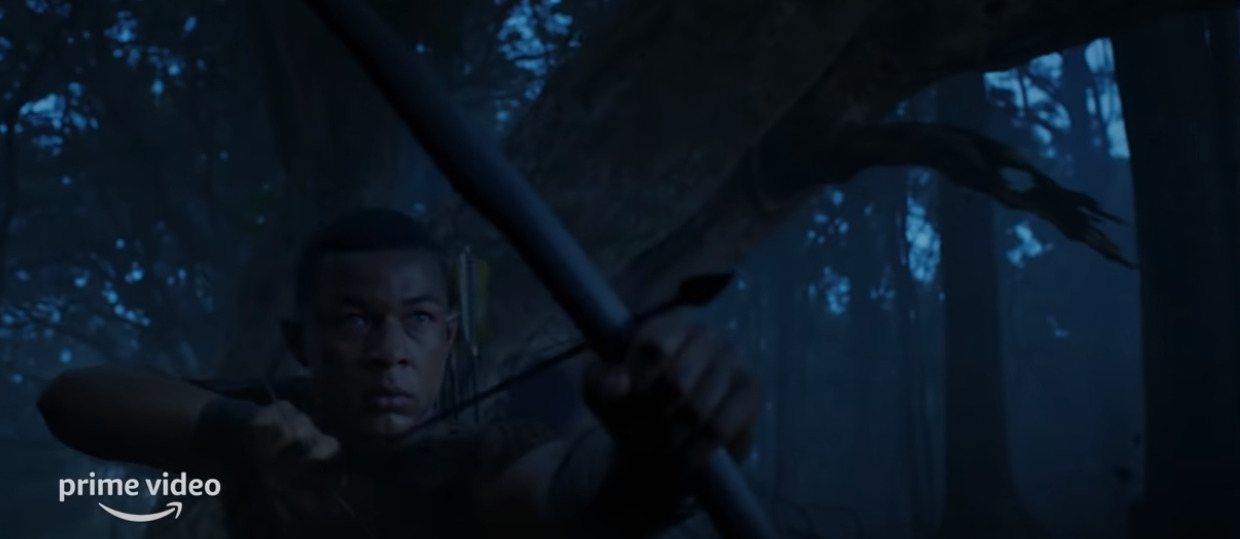
Source: The Lord of the Rings: The Rings of Power
RELATED: Actor Lenny Henry Confirms Radical Changes To Hobbits In Amazon’s The Lord of the Rings Series
Tolkien even concluded the letter writing, “Pan III…. is totally unacceptable to me, as a whole and in detail. If it is meant as notes only for a section of something like the pictorial length of I and II, then in the filling out it must be brought into relation with the book, and its gross alterations of that corrected. ”
“If it is meant to represent only a kind of short finale, then all I can say is : The Lord of the Rings cannot be garbled like that,” he stated.
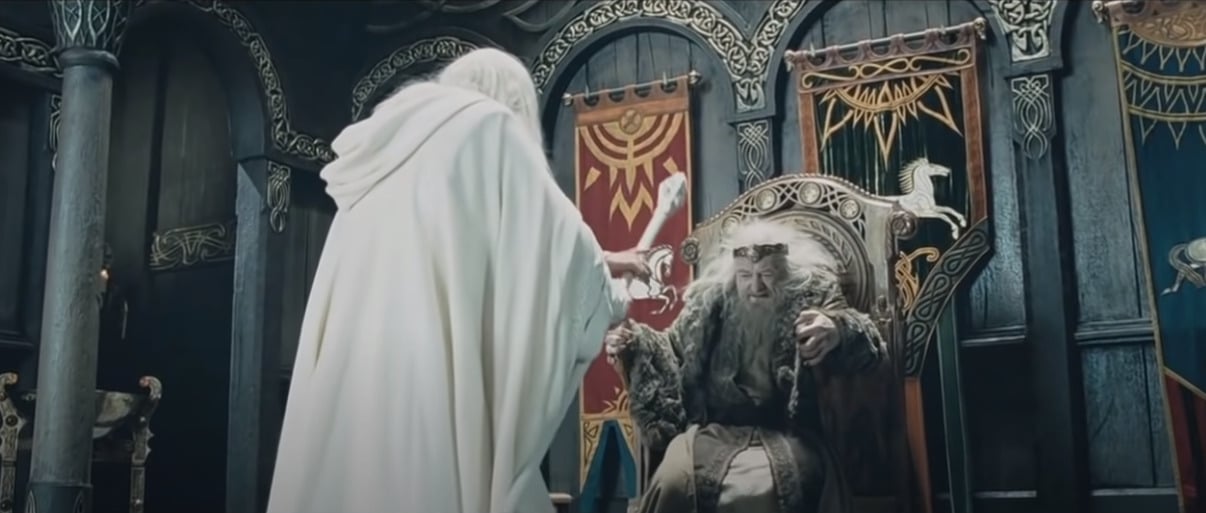
Source: The Lord of the Rings: The Two Towers
Despite all of this, Sledge continues by describing people critical of Amazon’s new show as racists.
He begins by writing, “I also think it’s worth saying that anyone dismissing the series’ detractors as ‘not real fans’ or ‘not a part of this fandom’ are missing the point. … There are racist Lord of the Rings fans, we just need to make sure they’re unwelcome in our communities.”
Based on his comments at the beginning of the article that must mean he has no place in the fandom, right? It’s unclear, but this entire screed he wrote up appears to be “trolling, gatekeeping, and plain old racist.”
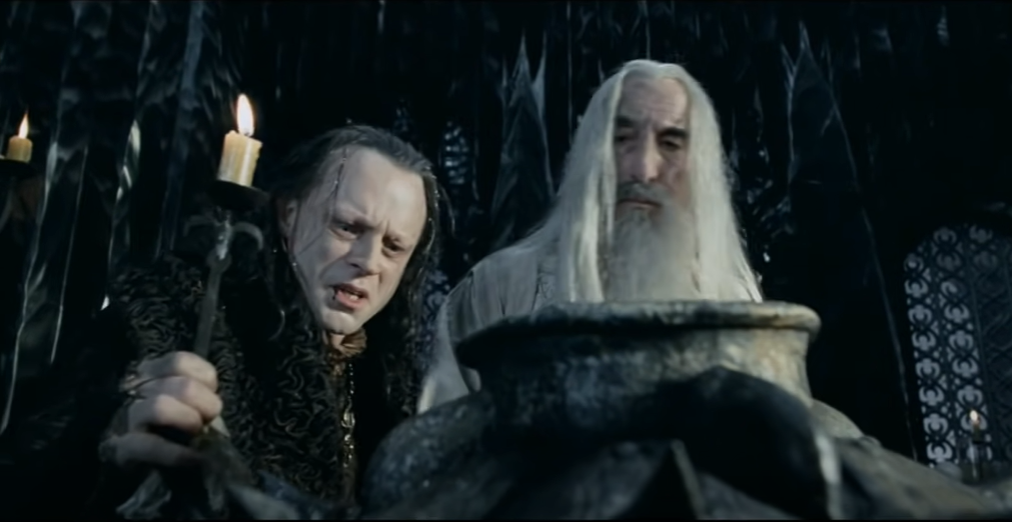
Source: The Lord of the Rings: The Two Towers
RELATED: The Lord Of The Rings Rumor Claims One Of Galadriel’s Brothers Plays A Leader Of A Band Of Orcs
In another moment of irony, after calling The Lord of the Rings fans racist and accusing Tolkien of using anti-Semitic tropes, he asks why people can’t treat others with respect by detailing the friendship between Gimli and Legolas.
He concludes the thought writing, “The two have been presented as white in all adaptations to date, but why can’t we treat each other with the same respect?”
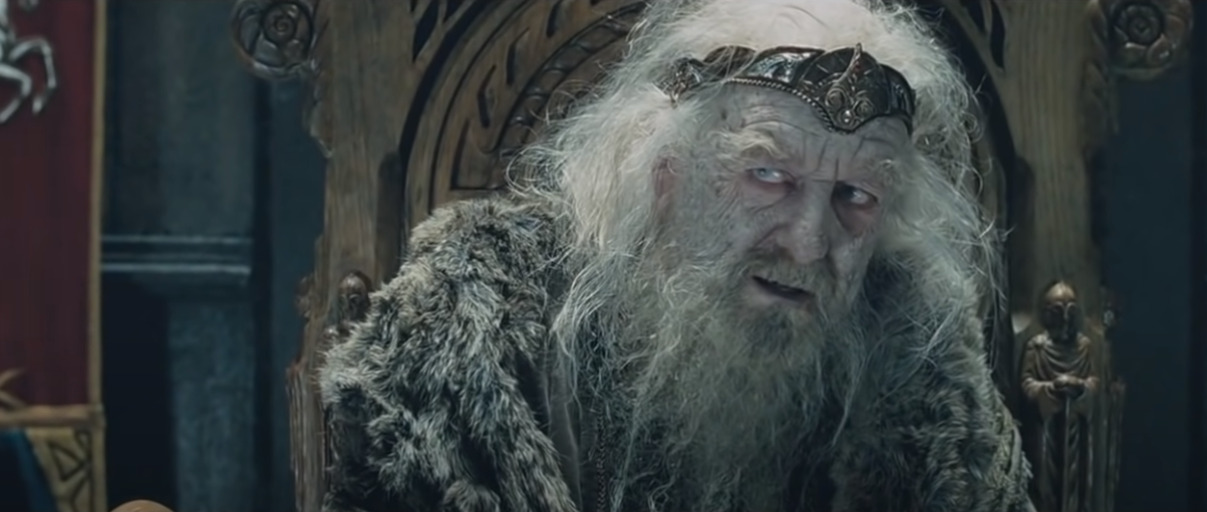
Source: The Lord of the Rings: The Two Towers
It’s amazing that someone who calls other people racists and accuses Tolkien of using anti-Semitic tropes would have the gall to try and grandstand about treating others with respect, but it’s what we’ve come to expect from social justice warriors.
Nevertheless, he should be treated with respect, but Sledge should start taking his own advice and start doing the same, but given this article I doubt that will happen any time soon.
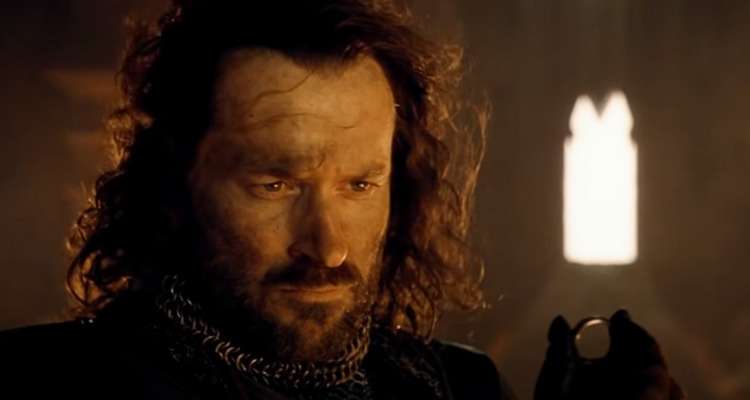
Source: The Lord of the Rings: The Fellowship of the Ring Extended Edition
What do you make of Sledge’s accusations against Tolkien and The Lord of the Rings fans?
More About:Books Movies Television
